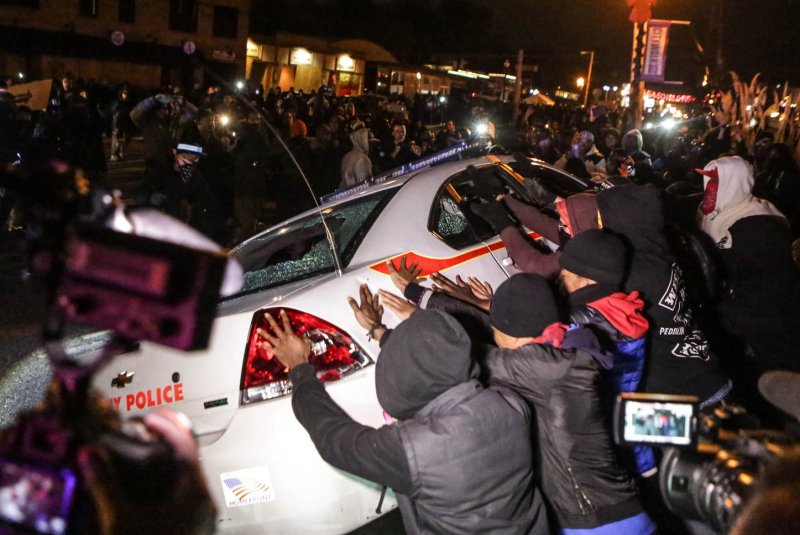Demonstrators turn over a police car in Ferguson, Missouri during the night of November 24th/25th after a grand jury decided not to indict police officer Darren Wilson in the killing of Michael Brown late on November 24, 2014. Wilson killed Brown, who was unarmed, in an August 9, 2014 incident that has sparked racial tension and riots. UPI/Lawrence Bryant |
License Photo
WASHINGTON, Dec. 17 (UPI) -- Americans are more pessimistic about race relations than they have been in two decades according a new study.
Only four out of every ten people living in the United States believe domestic race relations are in good shape, according to an NBC News/Wall Street Journal poll, while 57 percent of Americans classify race relations as "bad" or "very bad."
The findings represent a consistent dip in race relations since 2008. The same poll taken in July 2013 showed a slim majority of Americans, 52 percent, felt positively about race relations. Five years earlier, in the wake of Barack Obama's election as the country's first black president, 77 percent of U.S. residents felt race relations were on the the right track.
The last time in recent history this group of pollsters found racial tensions so high was in 1995 after Hall of Fame running back O.J. Simpson was acquitted of the murder of Nicole Brown Simpson.
Like in 1995, participants in the poll linked their drop in confidence about race relations to current events.
While the shooting death of unarmed teen Michael Brown by now-former police officer Darren Wilson contributed to the responses of black Americans polled, it did not contribute as strongly as a grand jury's decision not indict the New York police officer responsible for the choking death of Eric Garner, who was being arrested for selling untaxed loose cigarettes.
The poll comes on the heels of a study that showed many Americans still possess implicit prejudices, despite being unable or unwilling to see them as such. Using data from over 2 million participants, Harvard University's Project Implicit determined most white Americans still act with bias toward black people, with the most serious patch of negative racial bias still thriving the Deep South. Project Implicit found the least biased U.S. states to be in the Southwest, Mountain West and Pacific Northwest.















